Bookings closed.
Anxiety disorders are among the most common mental health conditions seen in child and adolescent mental health services, yet they may be overlooked or not properly managed in a number of children and young people.
The 2022 ACAMH Jack Tizard International Conference will provide an updated and evidence-based overview on the clinical presentation and management of anxiety disorders in the clinical setting as well as in schools.
Speakers include; Professor Cathy Creswell, Dr. Georgina Krebs, Dr. Eleanor Leigh, Professor Jacqui Rogers, Dr. John Walkup, Dr. Polly Waite
Who should attend
About the talks
Programme
About the speakers
Who should attend
This day would be particularly beneficial to all those who work with children affected with mental health issues. It will be of particular interest to clinicians, those working in education, such as Educational Psychologists, and those with a pastoral care responsibility, plus those who oversee youth work such as Social Workers.
Additionally, it is also relevant to those conducting research in the field of child and adolescent mental health, Child and Adolescent Psychiatrists and Psychologists, Speciality Doctors, Clinical leads, Nurse Practitioners, Researchers, Investigators, and those with an interest in child and adolescent mental health.
About the talks
Professor Cathy Creswell, Oxford University
‘Increasing access to psychological therapies for pre-adolescent children’
Problems with anxiety have a particularly early age of onset. Yet few preadolescent children with anxiety problems access evidence based interventions. This talk will give an overview of our recent research that has identified barriers to accessing support for children with anxiety problems and their families and has attempted to address these barriers through (i) improving identification of anxiety problems in preadolescent children, (ii) providing support through schools, and (iii) delivering brief online interventions to parents to help them help their children.
Learning objectives
- To recognise the barriers to accessing psychological interventions for preadolescent children with anxiety problems and their parents/carers
- To identify routes to improve identification of anxiety problems in preadolescent children
- To identify methods to increase access to effective psychological support for preadolescent children with anxiety problems and their parents/carers
Dr. Georgina Krebs, KCL
‘Understanding and treating obsessive-compulsive disorder in young people with autism spectrum disorder’
Obsessive-compulsive disorder (OCD) and autism spectrum disorders (ASD) commonly co-occur, and are often experienced as a particularly challenging comorbidity. This talk will provide an overview of our research aimed at: i) understanding the clinical profile and treatment outcomes of young people with OCD and ASD; ii) optimising cognitive behaviour therapy (CBT) for OCD in young people with ASD; and iii) promoting detection of ASD in young people with OCD by validating ASD screening tools.
Learning objectives
- To identify clinical correlates of co-occurring OCD and ASD in young people
- To recognise the limitations of ‘standard’ CBT for OCD in young people with ASD
- To consider modifications that may enhance CBT for OCD in youth with ASD
- To understand issues relating to the detection of ASD in young with OCD
Dr. Eleanor Leigh, Oxford University
‘Improving treatment outcomes for adolescents with social anxiety disorder’
Social anxiety disorder (SAD) is common, persistent, impairing, and it nearly always first occurs in adolescence. However, outcomes from standard treatments are suboptimal. In this session, we will discuss recent research that aims to understand the cognitive and behavioural mechanisms of adolescent SAD and how we have used this knowledge to advance treatment outcomes for this population with the development and evaluation of online Cognitive Therapy.
Learning objectives
- To understand the limitations of current standard treatments for adolescents with SAD
- To recognise the psychological processes that maintain adolescent SAD
- To consider what may be the key ingredients of effective treatments for this population
Professor Jacqui Rogers, Newcastle University
‘Autism and Anxiety’
During this session we will consider recent advances in research that aims to understand the mechanisms and phenomenology of anxiety experienced by autistic children. We will also spend some time thinking about how to identify anxiety in this group and devise appropriate and valid tools to identify anxiety, to ensure that we avoid diagnostic overshadowing and ask the right questions in the right ways. We will end with an exploration of some evidence based interventions to meet the needs of autistic children experiencing anxiety.
Learning objectives
- To understand recent advances in research that aims to understand the anxiety experienced by autistic children.
- To consider measurement issues in the identification of anxiety for autistic children.
- To explore interventions to meet the needs of autistic children experiencing anxiety.
Dr. John Walkup, Ann & Robert H. Lurie Children’s Hospital of Chicago
‘Anxiety Disorders in Children and Adolescents’
Learning objectives
- To understand the difference between anxiety disorder and severe normal anxious reaction to a stressor
- To understand how anxiety disorders are often not diagnosed and symptoms attributed to other conditions
- To understand the course of treatment response and the superiority of combination treatment
Dr. Polly Waite, Reading University
‘The presentation and treatment of anxiety disorders in adolescents’
Anxiety disorders are among the most common mental health difficulties experienced by adolescents. Prevalence rates of anxiety disorders in adolescents are around 8–11% and appear to have increased over recent years. However, the specific developmental needs of adolescent are often overlooked with treatments developed for and evaluated with children and young people across broad age ranges. This talk will give an overview of our recent research which focuses specifically on adolescent anxiety disorders. It will discuss (i) the clinical characteristics of adolescent anxiety disorders, (ii) identified barriers to accessing support for adolescents, (iii) clinical outcomes for adolescents following psychological treatment of an anxiety disorder, (iv) the involvement of parents and carers in treatment and (v) our recent work on brief CBT delivered by low intensity practitioners.
Learning objectives
- To develop an understanding of how anxiety disorders may present differently in adolescents compared to children
- To develop an understanding of evidence-based psychological approaches to the treatment of anxiety disorders in children and adolescents
- To develop an understanding of the current evidence base for parental involvement in treatment
Programme
Day 1 Thursday 16 June
13:15 Welcome ACAMH Chair – Dr. Gordana Milavić
13:20 The presentation and treatment of anxiety disorders in adolescents – Dr. Polly Waite
13:50 Q&A
14:05 Autism and Anxiety – Prof. Jacqui Rogers
14:35 Q&A
14:50 Break
15:05 Improving treatment outcomes for adolescents with social anxiety disorder – Dr. Eleanor Leigh
15:35 Q&A
15:50 Closing comments ACAMH Chair Dr. Gordana Milavić
Day 2 June 17
13:15 Welcome ACAMH Academic Secretary Professor Samuele Cortese
13:20 Increasing access to psychological therapies for pre-adolescent children Prof. Cathy Creswell
13:50 Q&A
14:05 Understanding and treating obsessive-compulsive disorder in young people with autism spectrum disorder – Dr. Georgina Krebs
14:35 Q&A
14:50 Break
15:05 Anxiety Disorders in Children and Adolescents – Dr. John Walkup
15:35 Q&A
15:50 Closing comments ACAMH Academic Secretary Professor Samuele Cortese
About the Speakers
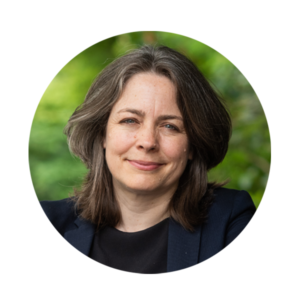
Cathy Creswell is a Professor of Developmental Clinical Psychology who leads The Oxford Psychological Interventions in Children and adolescents (TOPIC) research group at the University of Oxford. Cathy’s research focuses on the development, maintenance and treatment of anxiety disorders. She is an Honorary Consultant Clinical Psychologist in Oxford Health NHS Foundation Trust, a former NIHR Research professor, and an NIHR Senior Investigator. (Photo credit John Cairns)
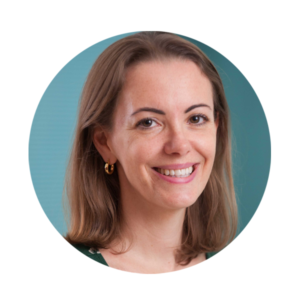
Dr Georgina Krebs is an Honorary Consultant Clinical Psychologist and Associate Professor of Young People’s Mental Health and Cognitive Behaviour Therapy, at University College London. Her research focuses on identifying mechanisms underpinning certain mental disorders in young people, particularly obsessive-compulsive disorder (OCD) and related conditions. She is also interested in understanding factors that interfere with recovery from these disorders, to inform the development of new treatment approaches. Her research involves a range of methodologies, encompassing behavioural genetics, experimental psychology, epidemiology and clinical trials.
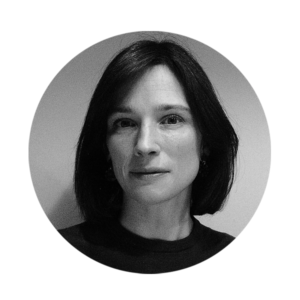
I am a Clinical Research Fellow at the Department of Experimental Psychology, University of Oxford, and Honorary Clinical Psychologist at Oxford Health NHS Foundation Trust. My work is focused on improving our understanding and treatment of adolescent anxiety disorders, and social anxiety disorder in particular. To do this, I use a broad range of methods, including experimental and prospective methods, meta-analysis, and clinical trial designs. My research looks at: the cognitive and behavioural mechanisms of adolescent social anxiety disorder; psychological therapies for adolescent social anxiety disorder; improving access to psychological therapies; how social anxiety affects academic achievement; the peer environment and social anxiety in adolescence; and parental influences on the maintenance of social anxiety in youth. My work has been supported by the Wellcome Trust and the NIHR. Previously I worked as a Clinical Psychologist at National & Specialist Child & Adolescent Mental Health Services (CAMHS) at The Maudsley Hospital, London. I teach and train on a number of national training courses, including Doctorate in Clinical Psychology (DClinPsy) and CYP-IAPT courses. I am on the advisory board of JCPP Advances and the Journal of Child Psychology & Psychiatry.
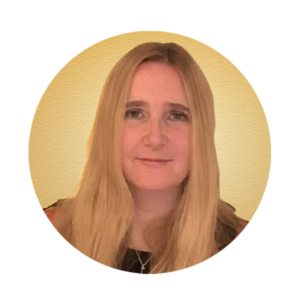
Jacqui Rodgers is Professor of Psychology Mental Health and an autism researcher based in the Faculty of Medical Sciences, Newcastle University, UK. Her work focuses on trying to understand the relationships between characteristics of autism (such as sensory issues and restricted and repetitive behaviours) and co-occurring mental health conditions. She has a particular interest in anxiety and suicide in autism. She is really keen to ensure that clinical services have good assessment methods available to them to identify when autistic people are experiencing mental health difficulties and to evaluate interventions and with colleagues has developed the first anxiety and suicidality questionnaires specifically designed and validated for autistic children and adults. She is also involved in the development and evaluation of a range of mental health focused interventions for autistic children and adults. Some of this work focused on how autistic people respond to uncertainty. All of the work she is involved is undertaken in collaboration with members of the autism community and she feels passionately that co-production is essential for us to be able to truly understand the experiences of autistic people.

Dr. Walkup is an international authority on Tourette syndrome and has extensive experience as a principal investigator in NIH-funded treatment trials in child and adolescent psychopathology, including anxiety and mania. Dr. Walkup has three main academic areas of interest. His work with Tourette syndrome, uniquely spans psychiatry, child psychiatry and neurology; his expertise in interventions research focuses on the development and evaluation of psychopharmacological and psychosocial treatments for the major psychiatric disorders of childhood including anxiety, depression, bipolar disorder, Tourette syndrome and suicidal behavior; and lastly, he has been involved in developing and evaluating interventions to reduce the large mental health disparities facing Native American youth, specifically drug use and suicide prevention. For his work, Dr. Walkup has been awarded the Norbert and Charlotte Rieger Award for Academic Achievement in 2009 from the American Academy of Child and Adolescent Psychiatry and the Blanche F. Ittleson Award for Research in Child Psychiatry in 2011 from the American Psychiatric Association and the Schonfeld Award from the American Society of Adolescent Psychiatry in 2016. His team at the Center for American Indian Health at Johns Hopkins won the Bronze Achievement Award from the Institute of Psychiatric Services of American Psychiatric Association in 2012 for the pioneering suicide prevention project on the White Mountain Apache Reservation. Dr. Walkup serves on the Scientific Advisory Boards of the Trichotillomania Learning Center and the Anxiety Disorders Association of America and the American Foundation of Suicide Prevention. In the recent past, Dr. Walkup was the Chair of the Medical Advisory Board of the Tourette Association of America. He is also the Deputy Editor for Psychopharmacology for the Journal of the American Academy of Child and Adolescent Psychiatry. He was recently elected Councilor at Large of the American Academy of Child and Adolescent Psychiatry. His research has been published in major medical journals including Journal of the American Medical Association and the New England Journal of Medicine, an unusual accomplishment for a child and adolescent psychiatrist. (Bio and image via Ann & Robert H. Lurie Children’s Hospital of Chicago)
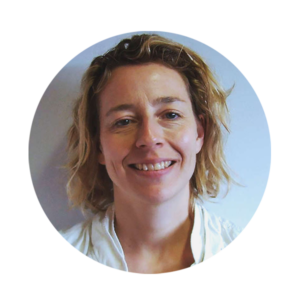
Dr Polly Waite is an Associate Professor of Clinical Psychology and is based at the Universities of Reading and Oxford. She is also a Consultant Clinical Psychologist. Her primary clinical and research interests are anxiety disorders in adolescents, particularly around the development of psychological treatments. She currently holds a NIHR Postdoctoral Fellowship to conduct a feasibility trial of cognitive therapy for the treatment of panic disorder in adolescents. She has edited and authored papers and books on anxiety for professionals, young people and their families.


